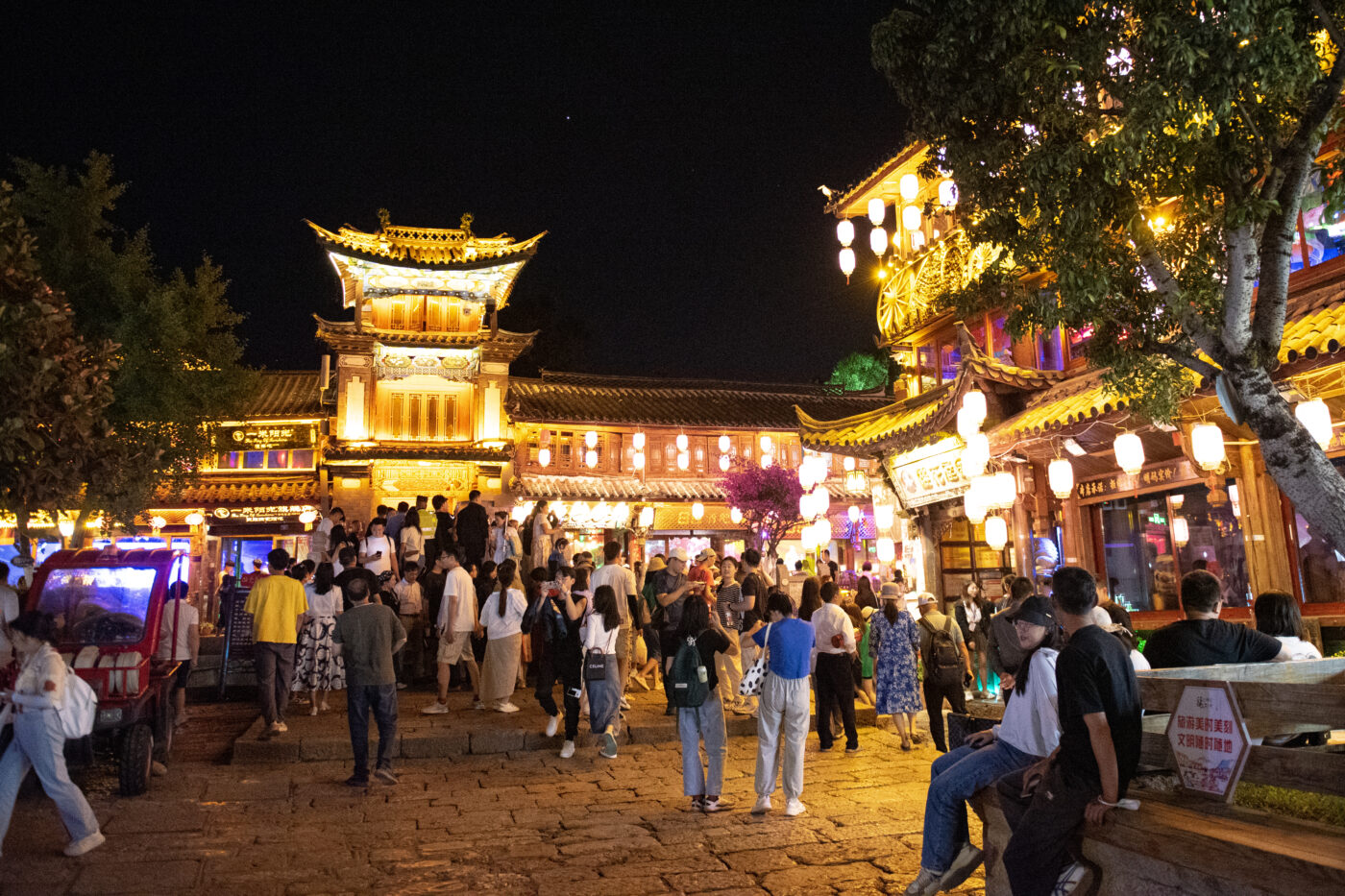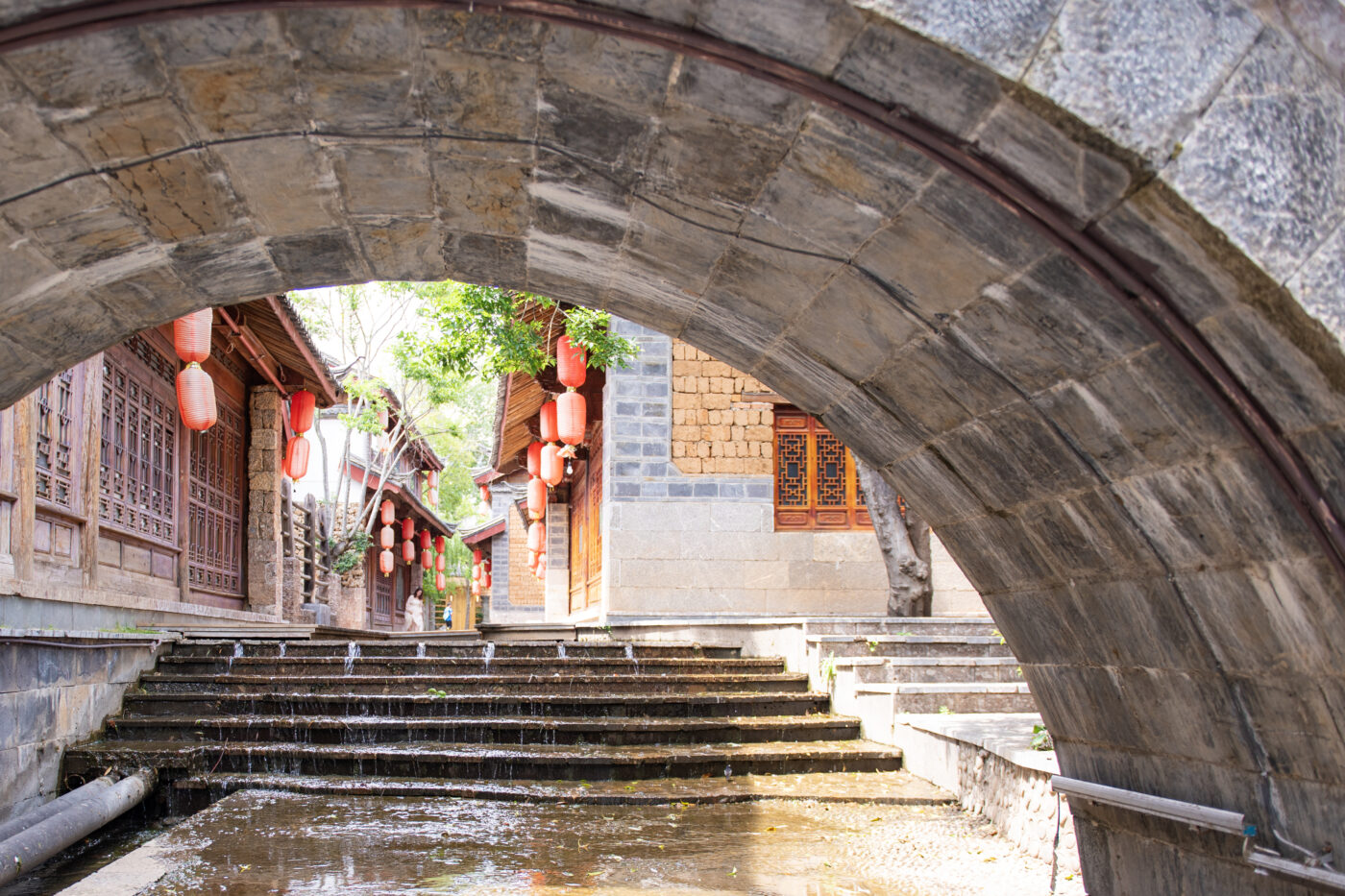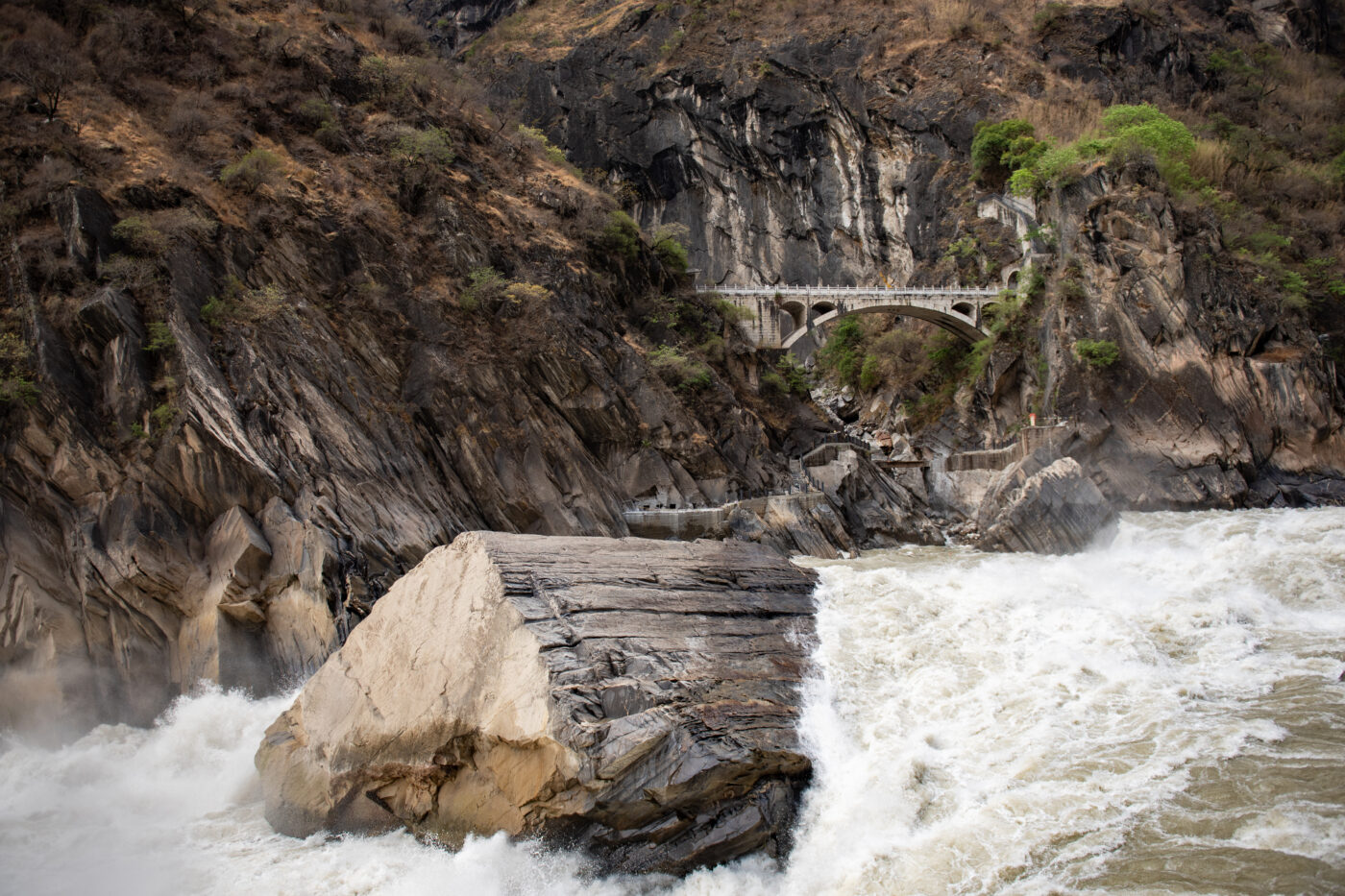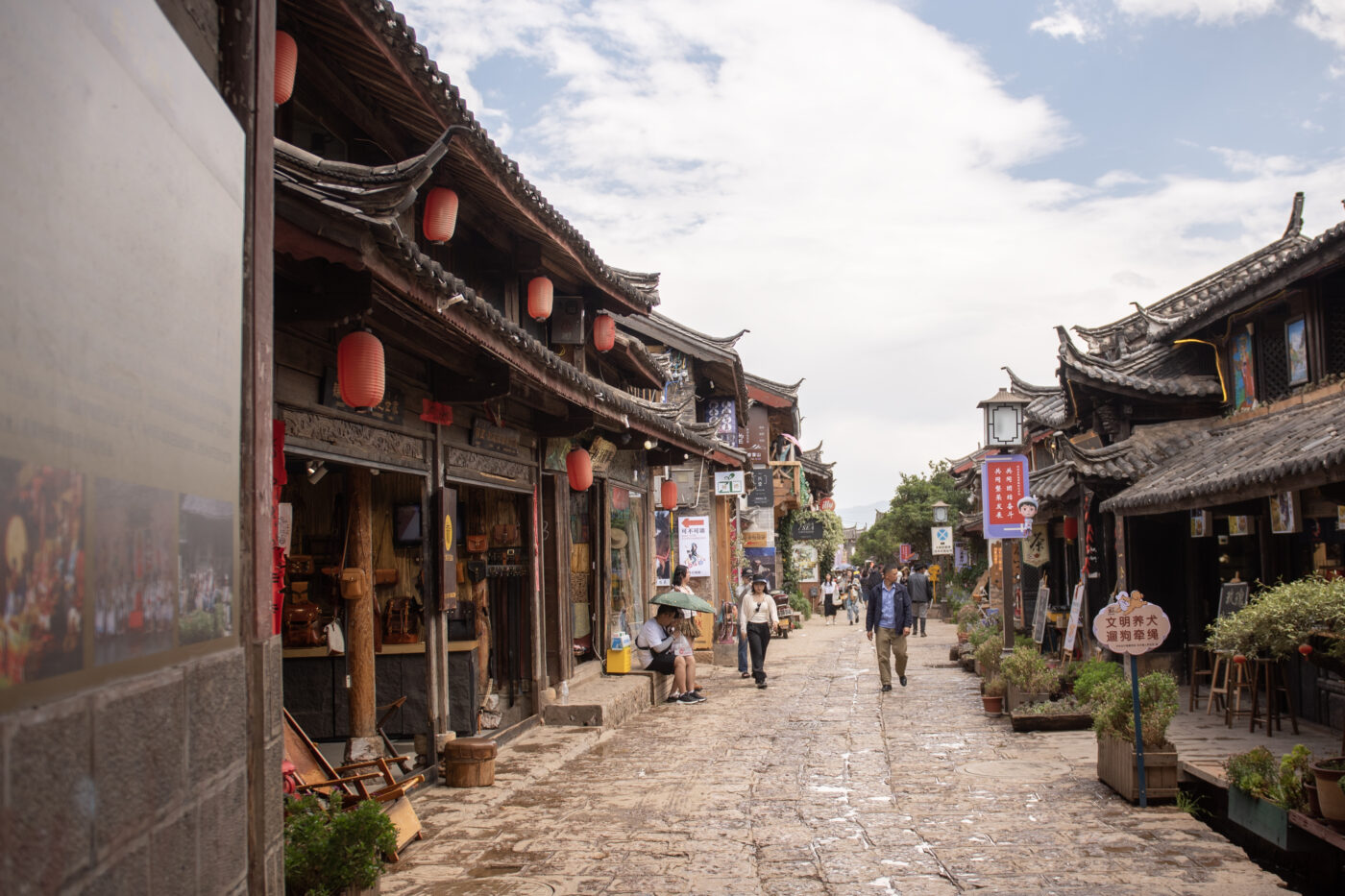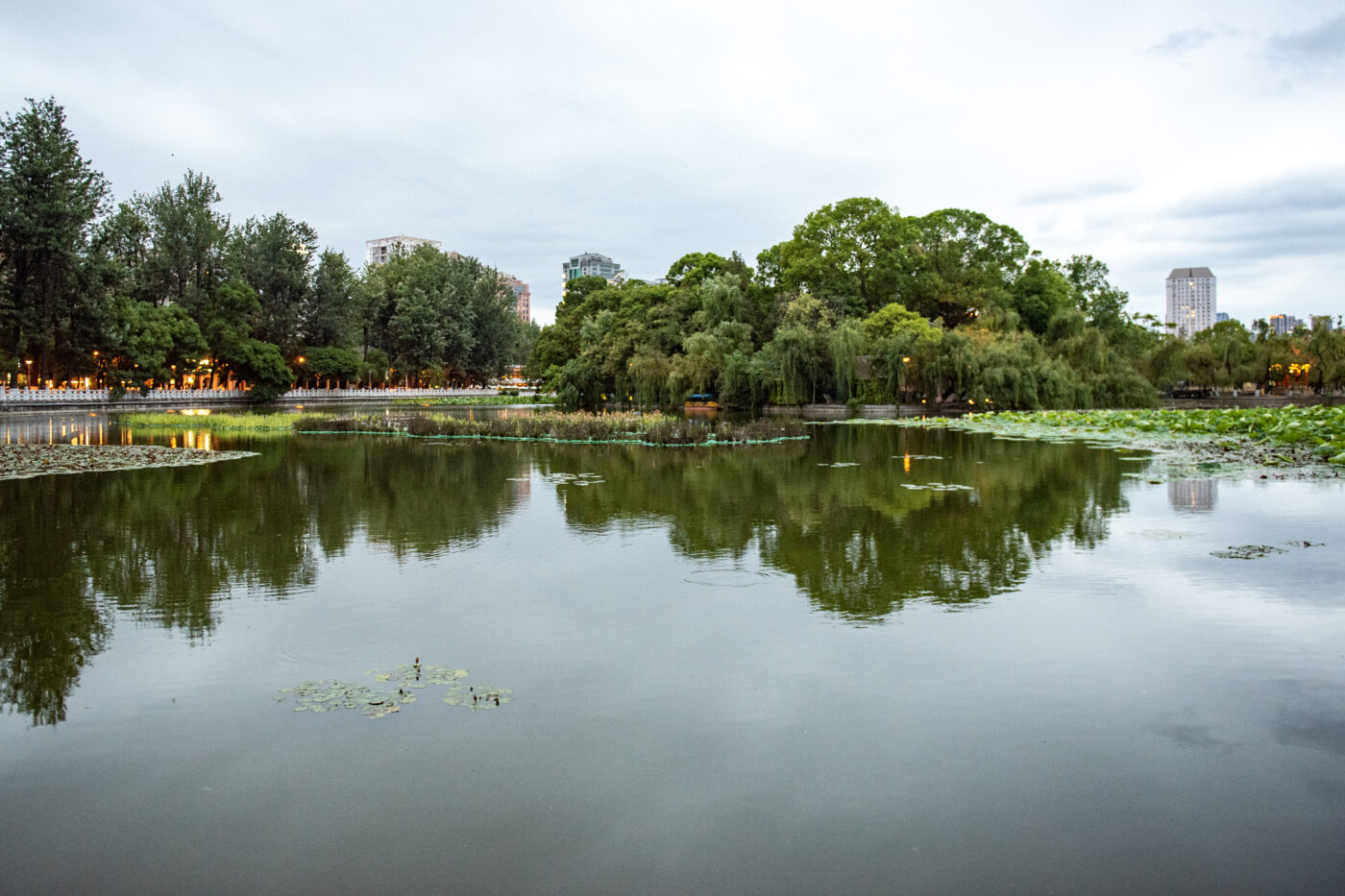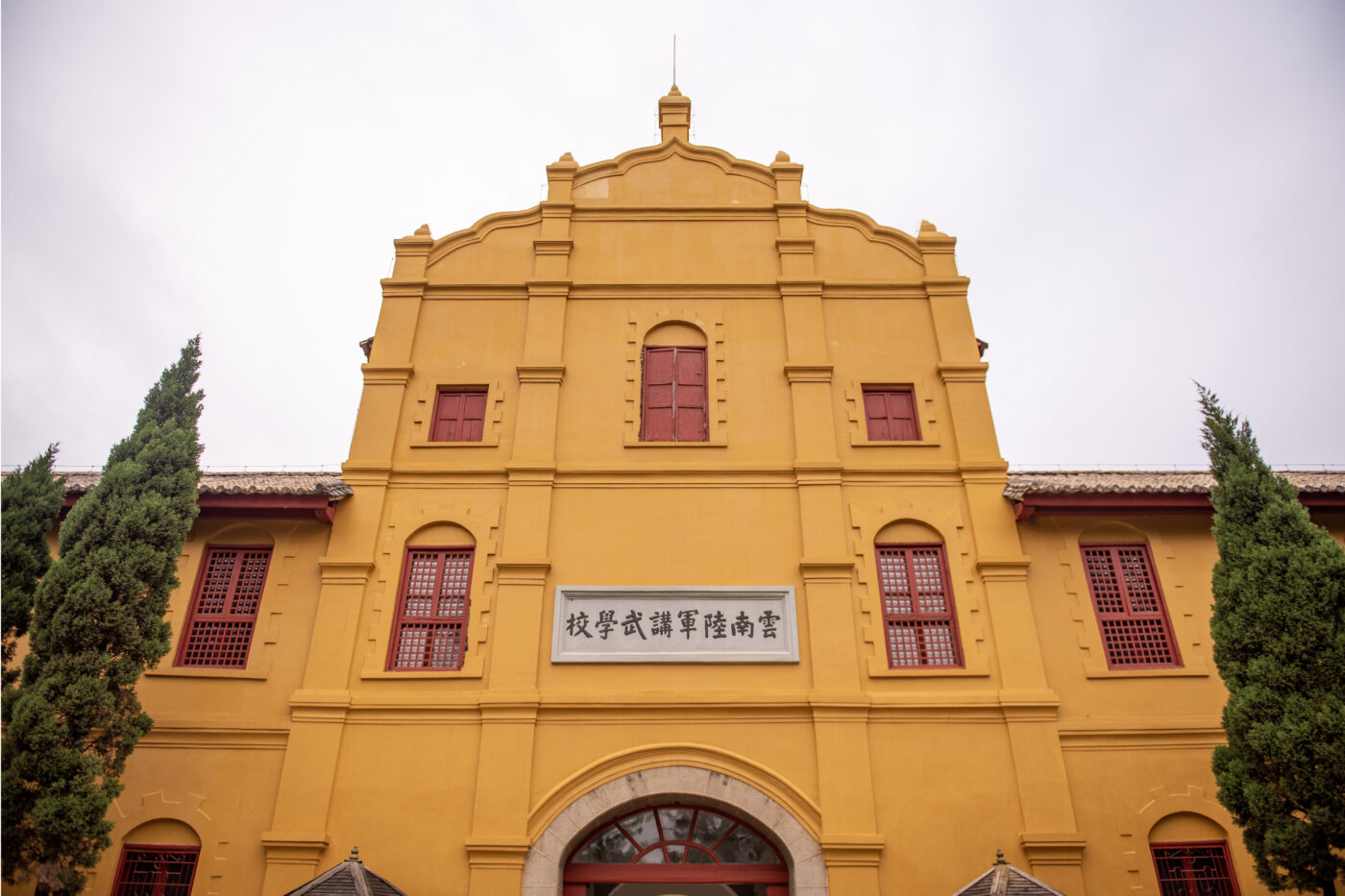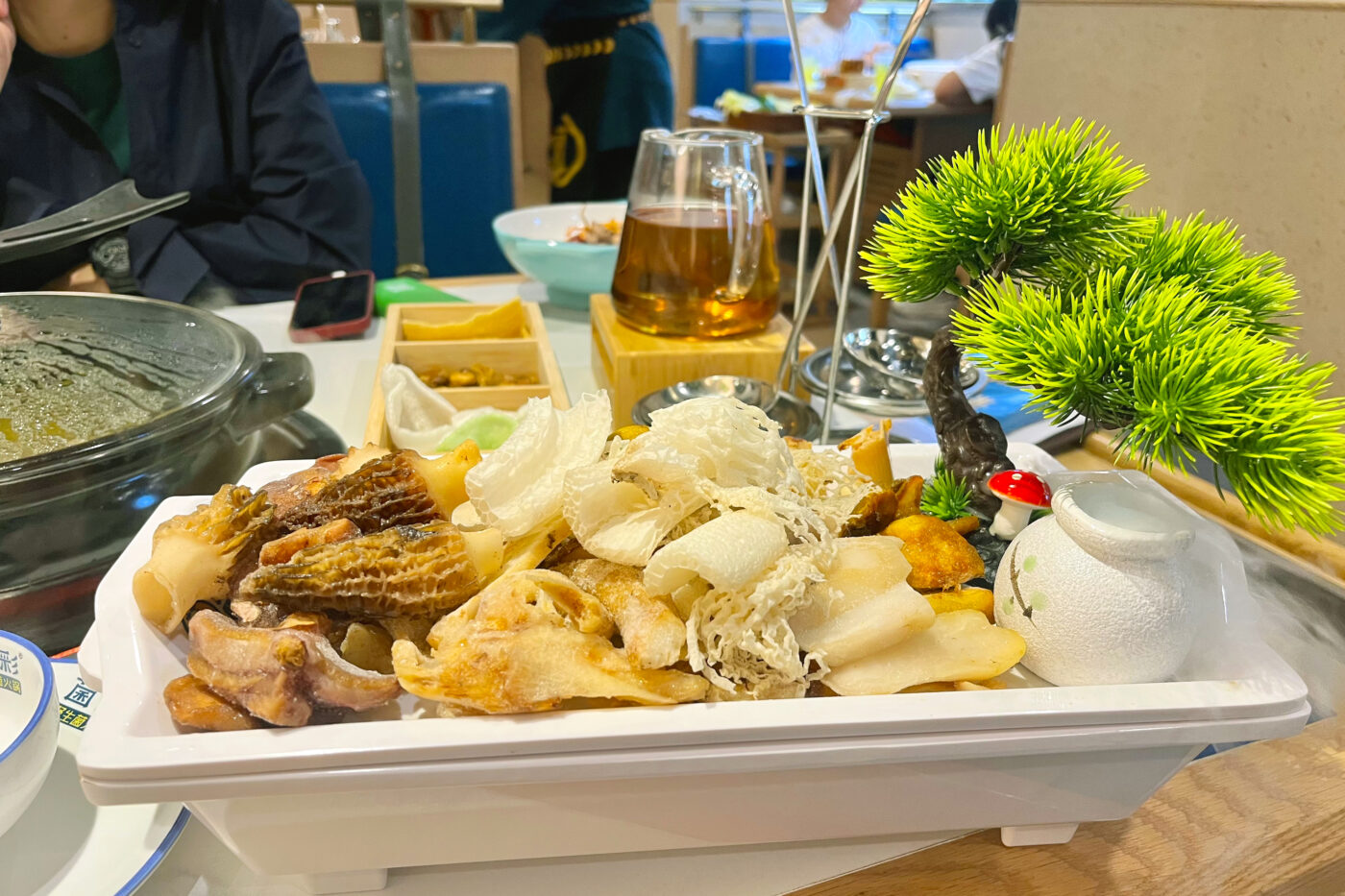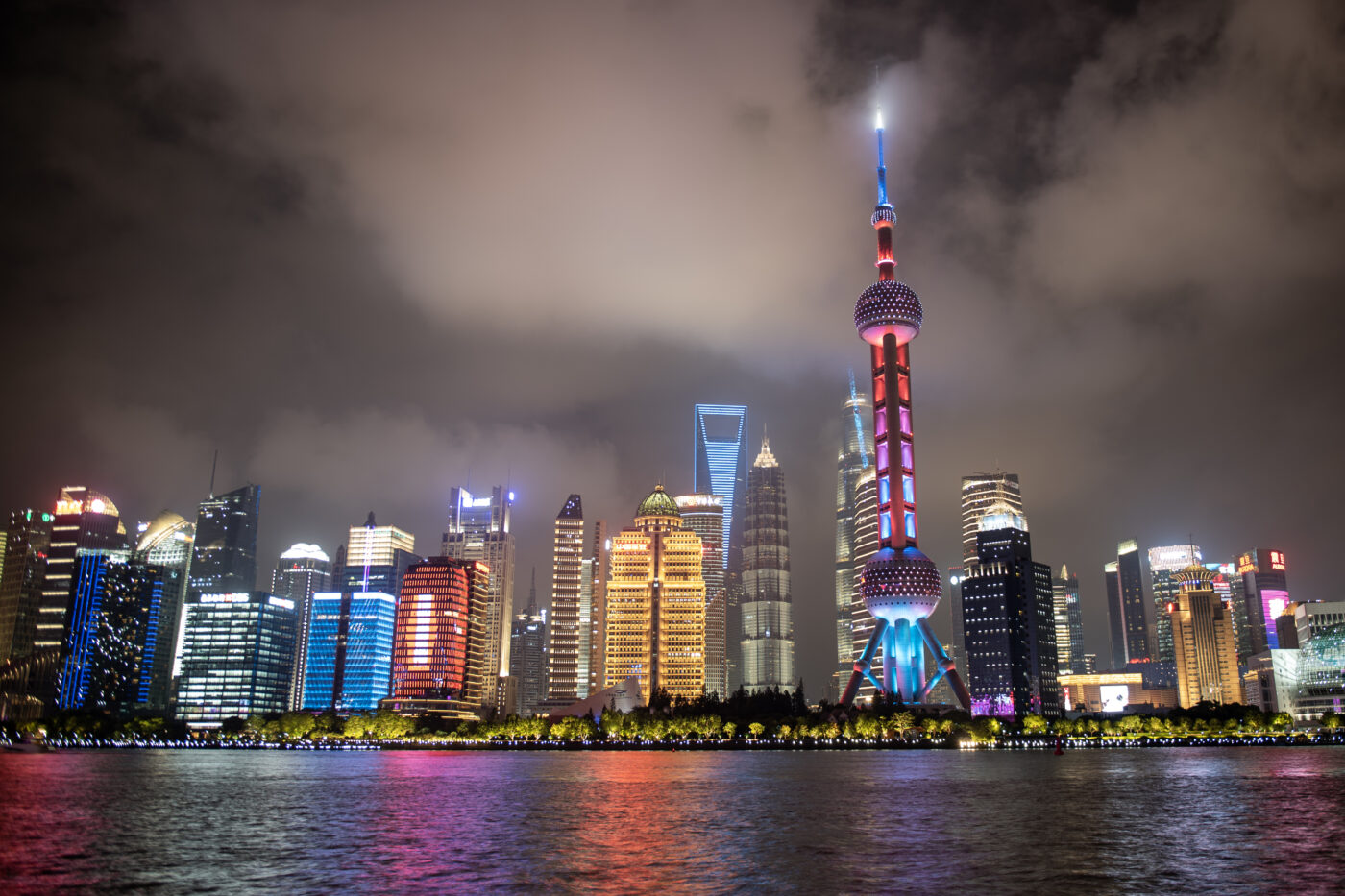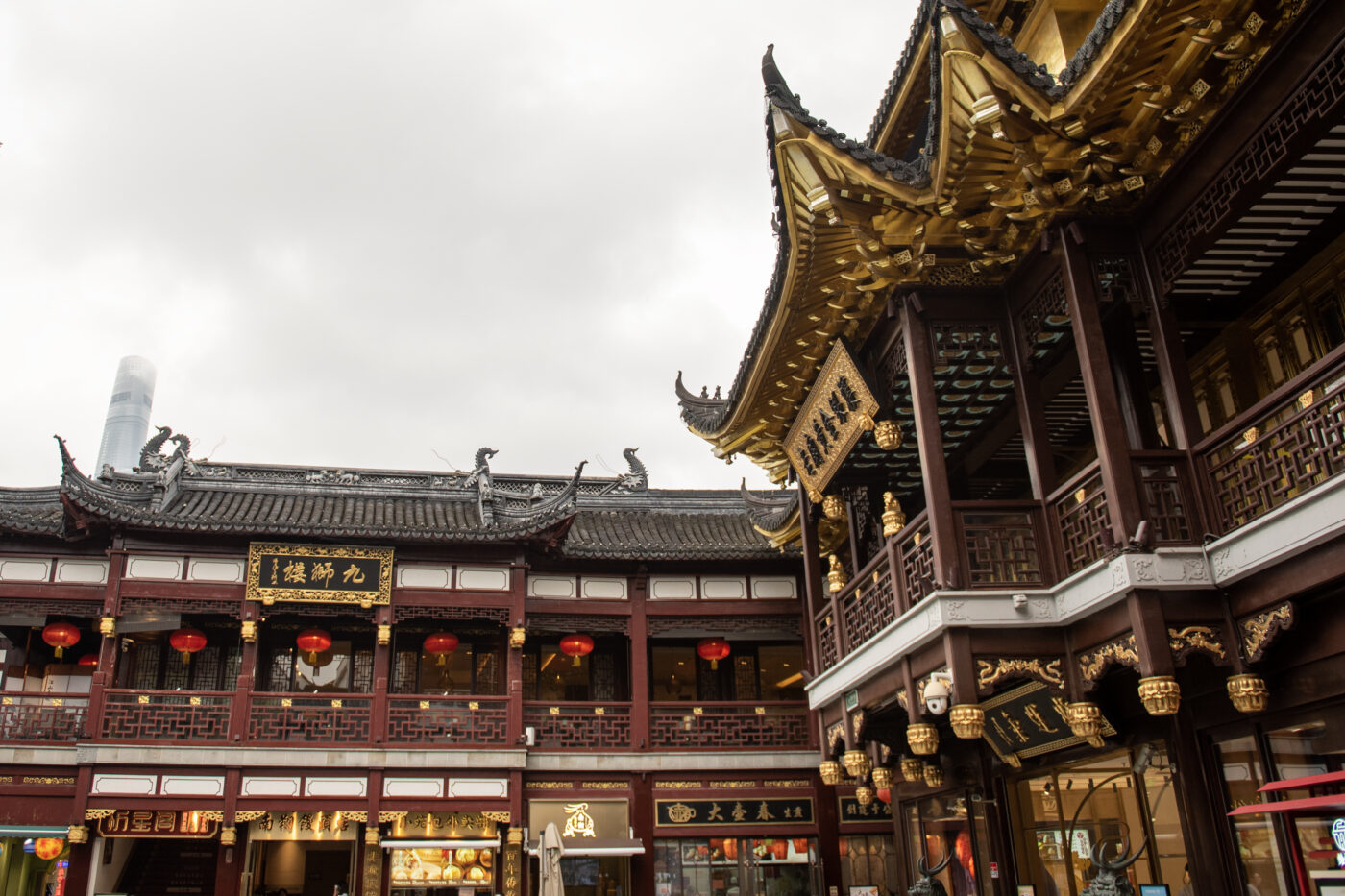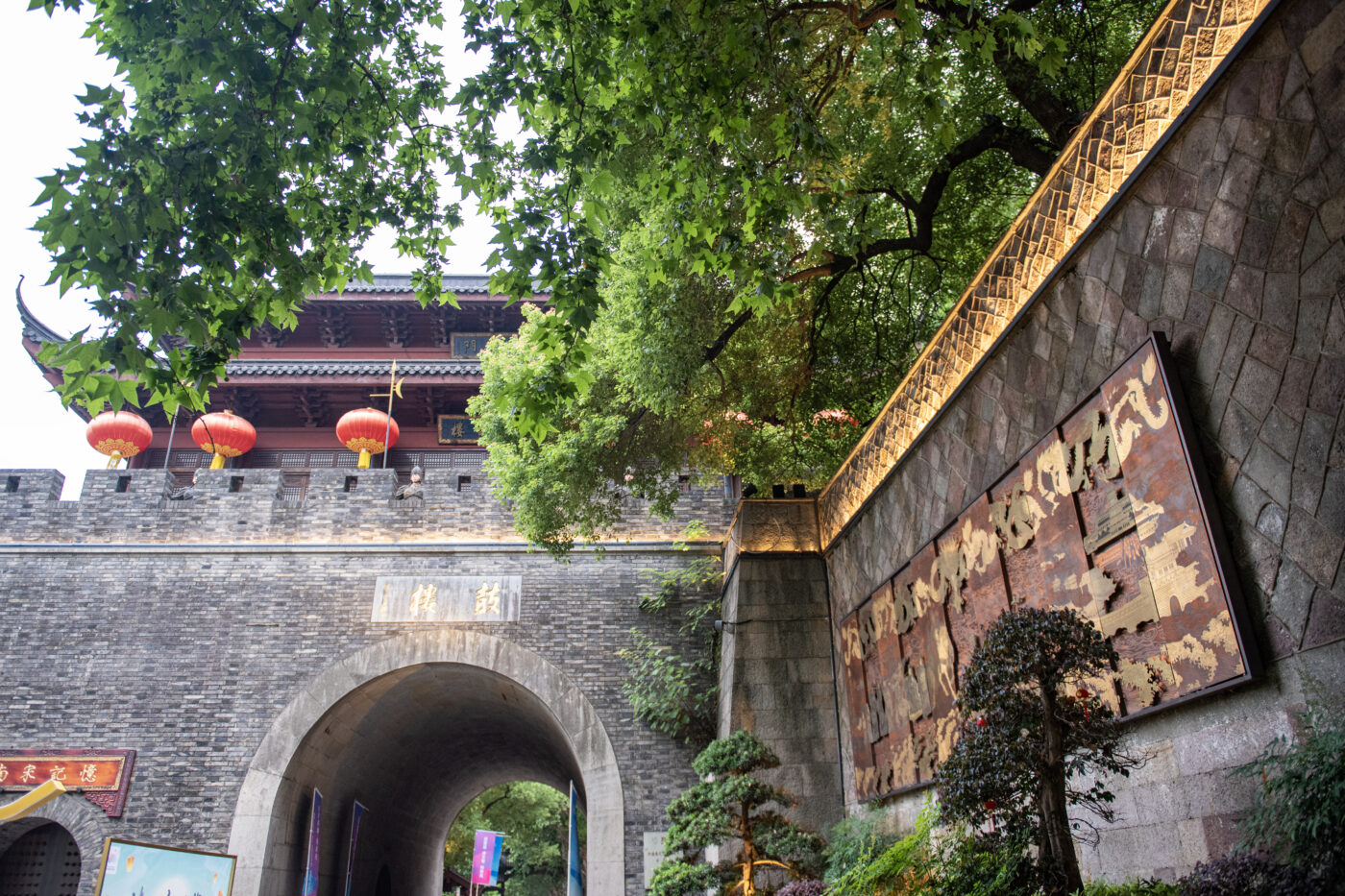I made it to Lijiang, home to the Naxi people. These ethnic minorities are thought to have migrated from Tibet and established the Kingdom of Lijiang. They were conquered, along with their neighbors, by Kublai Khan and incorporated into the Yuan dynasty. Lijiang was an important stop along the Silk Road, where it was the center for silk embroidery, and the Ancient Tea Horse Road. The ancient city, known as Old Town of Lijiang, was famous for its urban waterways and bridges.
I visited Shuhe Ancient Town, located a short distance from Lijiang. It’s the original settlement of the Naxi people, and it was an important place of commerce. On my way over, I was told that many overseas Chinese have recently moved there.
I returned from what may have been the worst tour I’ve ever been part of. However, it wasn’t all bad, so maybe I should start with what was good. Tiger Leaping Gorge, a scenic canyon, is located on a primary tributary along the upper Yangtze River. Legend has it that a tiger, seeking to escape death at the hands of a hunting party, leaped across the canyon. It used the boulder at the narrowest part of the canyon as a stepping stone to clear this channel. If true, this tiger deserved to live and forever be revered.
On my last day in Lijiang, I visited Baisha Village. This was the Naxi people’s original settlement in the region, and it was an important political, social, and cultural center. It’s also famous for its murals, mostly from the Ming dynasty.
Upon arriving in Kunming, the capital of Yunnan province, I discovered a vibrant cultural hub influenced by its proximity to Vietnam, Laos, and Myanmar. Green Lake Park offers a glimpse into the city’s charm and that I’ll explore further later on.
I spent some time at Green Lake Park, Kunming’s crown jewel. Situated in the city center, it comprises several small lakes connected by ancient bridges. While not extensive compared to other Chinese parks, it’s one of the most enjoyable parks I’ve visited so far on this trip.
For my last day in Kunming, I visited the Yunnan Railway Museum. Throughout much of its history, Yunnan has been isolated from the rest of China and the world due to its rugged terrain. Before the construction of the railway, travel to the region was arduous and challenging.
I made my great return to Shanghai! Last time I visited in 2010, I came to attend the World Expo. That was just before I left for business school, and so much has changed since then (both for the city, and for me). Specifically, I’ve now gained a level of Chinese language proficiency that has made it possible for me to take in much more of what this city has to offer. Previously, I had no proficiency. Also, now that I’ve had time to explore many of China’s ancient cities, I feel better equipped to connect China’s ancient past with the modern version of itself.
For my last day in Shanghai, I spent time at the City God Temple. It is located in what was Shanghai’s original urban core. It celebrates Shanghai’s elevation as a municipality (there are only three other such municipalities in China, including Beijing).
I made it to Hangzhou, the capital of Zhejiang province. This city is home to many of China’s largest internet companies, including Alibaba (China’s Amazon), Didi Chuxing (China’s Uber), and NetEase (China’s Zynga), among others. Many moons ago, I was considered for a role at NetEase to lead their North American finance operations. I went so far as to interview with the company CFO. Although that role never panned out in my favor, I do sometimes wonder how interesting that opportunity may have been!

